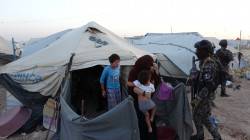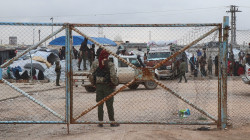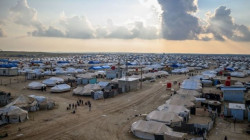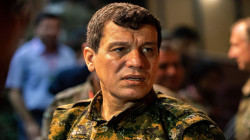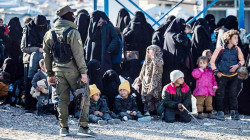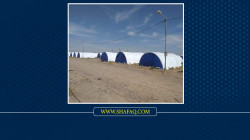Iraq to implement largest social reintegration program for Al-Hol returnees
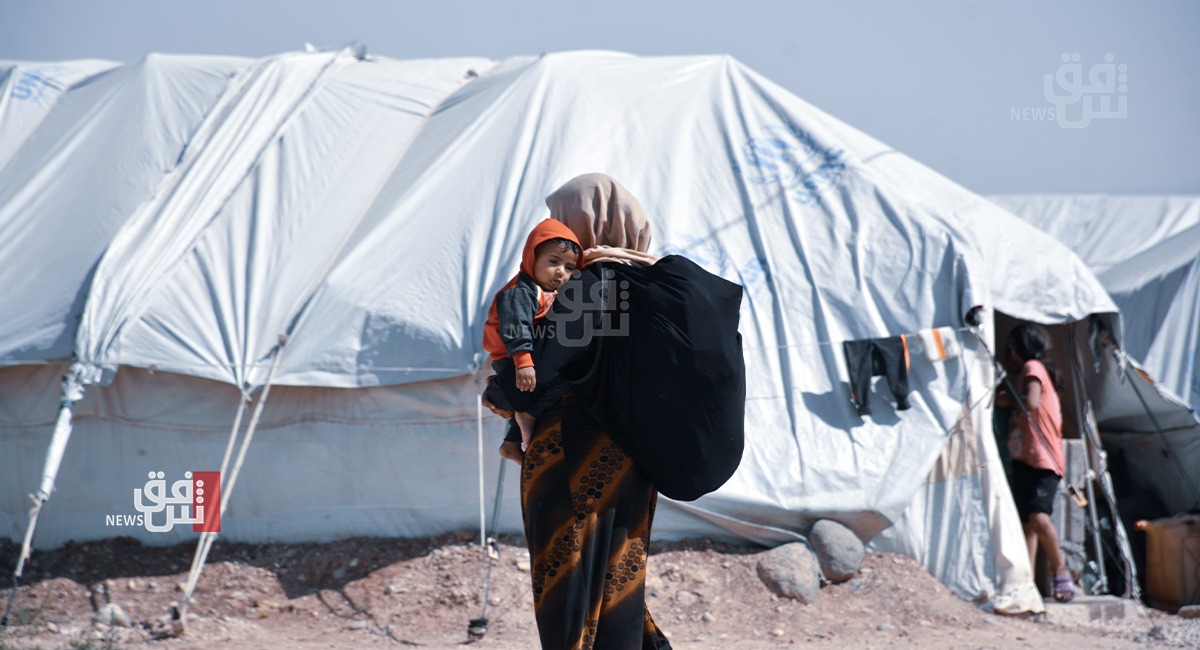
Shafaq News/ Iraqi National Security Advisor, Qasim al-Araji, announced, on Wednesday, that the government is implementing the "largest social reintegration program" for individuals returning from Syria’s Al-Hol camp.
This statement was made during a conference held by the National Security Advisory to review and update Iraq's Counter-Terrorism Strategy (2012-2025), in coordination with the Counter-Terrorism Service and in collaboration with the European Union Mission in Iraq.
Al-Araji emphasized that "all returnees from Al-Hol camp have undergone psychological rehabilitation at the Jadaa camp under the supervision of the Ministry of Migration and Displacement and other relevant agencies. So far, over 2,000 families have been returned to their original areas, and the remaining 600 families are still undergoing rehabilitation, in preparation for their reintegration and the opportunity to start new lives."
He added that Iraq is now free from terrorism and is working to sustain security and ensure its continuity. Al-Araji stressed the importance of adhering to the principle of citizenship, away from sectarian and ethnic divisions, stating, "Iraq is a nation for all, and we must move away from feelings of marginalization, operate under the rule of law, and ensure accountability. Citizens must trust the state and its judicial institutions."
Al-Araji further stated that there are no "first or second-class Iraqis," affirming that all Iraqis are equal, and the government, along with state institutions, is strong and committed to reinforcing social cohesion.
He also highlighted the importance of "monitoring social media platforms that spread division and toxicity among Iraqis, and ensuring that no party or group is allowed to divide Iraqi society. The security we have achieved is thanks to the sacrifices of Iraqis, and it is crucial to preserve it."
The Kurdish-run al-Hol camp in northeast Syria was home to more than 50,000 people, including family members of suspected ISIS militants, as well as displaced Syrians and Iraqi refugees, before repatriation efforts began in 2021. It is the largest camp for displaced people who fled after ISIS was dislodged from its last stronghold in Syria in 2019 and remains one of the biggest unresolved humanitarian issues in the region.
More than 43,000 Syrians, Iraqis, and foreigners from at least 45 countries remain in the squalid and overcrowded camp, according to official tallies. Iraqis are the largest nationality among them, followed by Syrians.
For years, Iraqi authorities have pushed for the closure of al-Hol, which is located close to the Iraqi border, citing security concerns. The UN has also been calling on governments to repatriate more of their citizens.
Iraq’s National Security Adviser Qasem al-Araji has been leading the government's efforts to repatriate Iraqis, pushing foreign governments to do the same and urging rapid dismantlement of the camp.
Since May 2021, hundreds of Iraqi families have been repatriated.
Between then and March this year, more than 1,920 Iraqi families have been transferred so far to Al-Jadaa camp, al-Araji said in March. “The figure includes 1,230 families who had been allowed to return home,” he said.
Repatriation of family members of suspected ISIS members has stirred controversy in Iraq, where the extremist group had seized large swathes of land before being defeated in late 2017. The group committed atrocities in Mosul and other areas of northern Iraq it controlled, including the targeting of minority groups such as the Yazidis.
Some Iraqis have resisted the repatriation efforts, saying they do not want ISIS families among them. Despite the criticism, the Iraqi government regularly repatriates its citizens from al-Hol, a policy commended by the UN and US.
